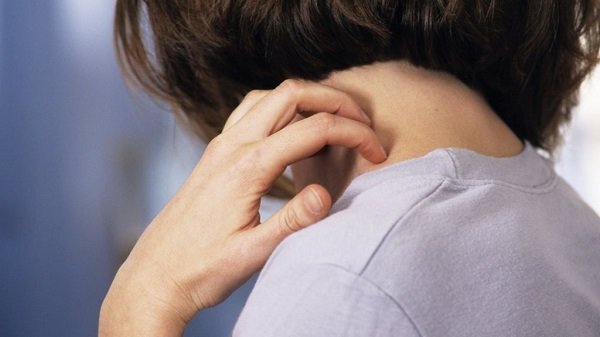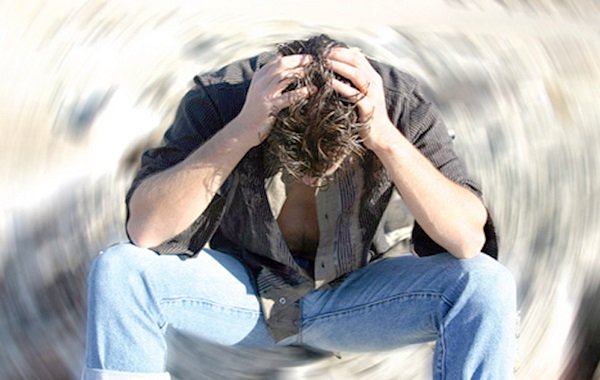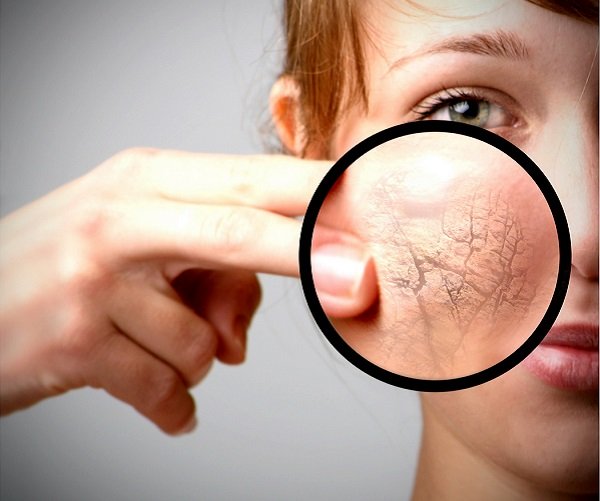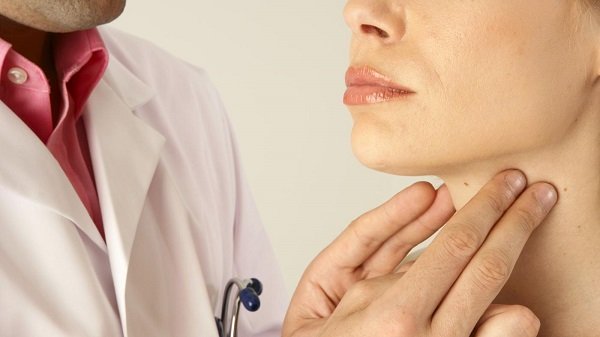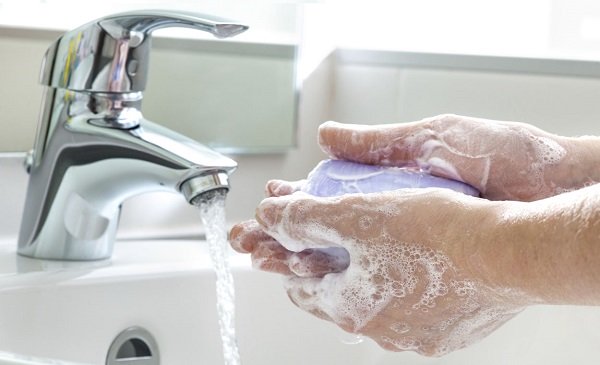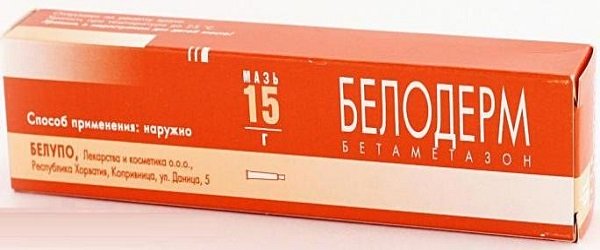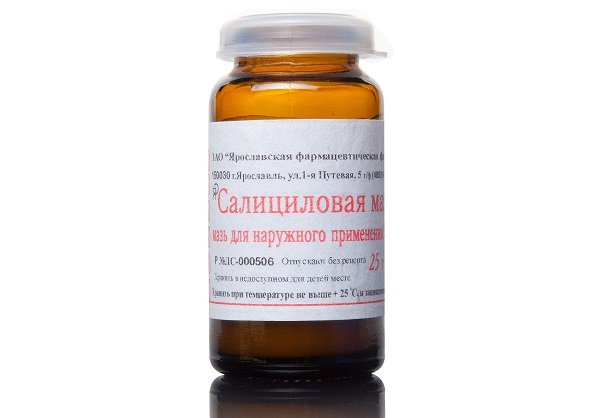Site sections
Editor's Choice:
- White spots on the nails, reasons for what to do, white spots on the nails and folk signs
- Available methods for rapidly increasing blood leukocytes
- Nail and skin fungus will not resist the coffee grounds
- Crocus furniture exhibition. Furniture exhibitions
- Owl tattoo on arm value
- The biggest members in the world
- Fractures of the phalanges of the foot photo
- What is “bad” and “good” cholesterol
- What to do if the skin around the nails dries
- The safest natural varnishes list
Advertising
| Pruritus on the back without external manifestations. Pruritus without external manifestations: causes and treatment. What ointment for pruritus is better to use. |
|
The skin is the largest organ of a person with a complex structure. The main purpose is to protect the body from overheating, hypothermia, infections, and harmful effects. It is widely believed that itching through the body without a rash is a skin problem, but it is not. Body itching suggests that the body has failed and is quite serious. Rirritating human scabies - a symptom of the disease, atreveal which it is quite difficult even for experienced doctors. 1 Etiology of manifestationsA person's life becomes simply unbearable when the skin is constantly or periodically itchy. You need to have an idea of what diseases cause itching. This will help to quickly solve the problem, eliminate discomfort. The following factors cause itching: Liver problems are often accompanied by skin scabies. When the liver is healthy, the body is promptly cleared of harmful substances, the sick liver does not cope. Bile acids and other toxins accumulate in the body. They cause itching, often at night. A common occurrence for patients is poor sleep.
In patients with diabetes, irritation zones: anus, genitals, armpits. When the sugar level rises, itching increases. Lighten condition. Itching is an unpleasant sensation that forces a person to scratch the affected skin. If the skin itches slightly - this is normal and occurs often, but sometimes this feeling is strong and causes a lot of problems. Persistent and intense itching is usually a symptom of a disease of the skin, organs of the body or the nervous system. Sometimes itching is accompanied by a rash, but can also occur on seemingly unchanged skin. The degree of distribution distinguish general (generalized) itching - when the whole body itches and local (local) itch, exciting only a specific area of the skin. With frequent scratching, the skin becomes thinner, injured and inflamed, which can make it painful and itch even more. Regardless of the cause of the itch, several ways help reduce its intensity and alleviate the condition:
Nails should be clean and short, especially when itching in children. The ends of the nails should be filed, not cut. The trimmed ends of the nails are sharp and uneven, they damage the skin more strongly. Causes of itchingIn most cases, the sensation of itching occurs when excitation of sensitive nerve endings in the skin and mucous membranes - receptors. Irritants of receptors can be: mechanical, thermal effects, the influence of chemicals, light, etc. One of the main chemical stimuli is a biologically active substance - histamine, which is produced in the body during allergies or inflammation. It also happens itchy central origin, that is, it develops without the participation of nerve endings of the skin. The source of central itching is a focus of excitation of nerve cells in the brain, which happens in some neurological diseases. Finally, it is known that there are factors that can increase the sensitivity of the skin to itching. For example, when exposed to heat in hot weather or when the body temperature rises, the skin itches more and the cold, on the contrary, relieves itching. Most of all, people suffer from itching in the evening and at night, which is associated with daily fluctuations in the diameter of blood vessels and, consequently, skin temperature. Immediate causes pruritus There may be various skin diseases internal organs, nervous system, blood and even malignant tumors. Itching in a child is a common symptom of chicken pox (chickenpox) - a childhood infection, the main manifestation of which is a characteristic skin rash. Itching for skin diseasesSkin diseases, in addition to itching, are accompanied by the appearance of a rash: blisters, spots, nodules, blisters, peeling and other elements on the skin. The following skin conditions may cause itching: In addition, the skin may itch after insect bites: mosquitoes, bedbugs, lice (for pediculosis), fleas, stinging arthropods (wasps, bees, etc.). As a rule, a small nodule forms against the reddened and hot skin on the site of the bite. Sometimes in the center of the nodule you can see the direct bite in the form of a dark point. Insect bites are especially hard on people with sensitive skin and a tendency to allergies. Frequently, various chemicals affecting the skin are caused by itching, for example:
Under the influence of ultraviolet sunlight is easy to get sunburn, after which itching appears, the skin turns red, and sometimes becomes covered with watery blisters. Another cause of itching may be excessive dry skin. If you have the above diseases, consult a dermatologist. Itching of the skin in diseases of the internal organsA symptom of some diseases of the internal organs is generalized (common) itching. In most cases, the skin remains unchanged: normal color, no rash, peeling. These diseases include:
Somewhat less itching is accompanied by a change in skin tone, which, for example, happens with subhepatic jaundice associated with impaired outflow of bile from the gallbladder. The skin begins to itch due to the accumulation of bile acids in it. This can be in gallstone disease, certain types of hepatitis, liver cirrhosis, pancreatic cancer, etc. Sometimes itching results from neurological or mental disorders or diseases. For example, after a stroke, with postherpetic neuralgia, stress and depression. Itching during pregnancy and during menopauseItching often occurs in pregnant women and goes away after childbirth. During pregnancy a number of skin diseases can develop, itchyincluding the following:
All these conditions usually appear in late pregnancy and disappear after childbirth. They are treated jointly by a physician and obstetrician-gynecologist. If during pregnancy you experience itching or you have an unusual skin rash, consult your doctor. Itching is also a common symptom in menopause. The cause of the itch is considered to be a decrease in estrogen production and an imbalance in other hormones. Itching in the anusThe causes of itching in the anus or anal itching can be a number of diseases, for example, the following: Besides common causesLocal foot itching may be associated with:
Treatment of itchingDepending on why the skin itches, treatment recommendations will vary, but there are a few general rules that will help relieve the itch. Particular attention should be paid to the rules of personal hygiene. While taking a bath or shower, do the following:
In terms of clothing and bedding, follow these rules:
Anti-Itch MedicinesIn a relationship medicines, adhere to the following rules:
Antihistamine pills can also cause severe drowsiness, so after taking them you can not get behind the wheel, use power tools or perform complex work that requires concentration. Some antidepressants, such as paroxetine or sertraline, can relieve an itch (if your doctor prescribes them, this does not mean that you are depressed). If you have itching on areas covered with hair, for example, on the scalp, the doctor may prescribe a special lotion instead of using sticky creams. Which doctor should I contact if my skin itches?With the help of the service Amendment, you can quickly find doctors who usually deal with the diagnosis and treatment of pruritus. It:
If you are not sure which doctor to turn to, use the section “Who treats this”. There, based on your symptoms, you can more accurately determine the choice of a doctor. Itching is an unpleasant sensation that occurs in the surface layer of the skin and mucous membranes in the form of a slight burning sensation or an unpleasant tingling sensation. Chronic persistent itching can disrupt the quality of life: lead to sleep disturbance, disability, depression, even suicidal attempt. Itching is local and generalized, acute and chronic. It is the dominant symptom of skin diseases and is often observed in systemic diseases. Pruritus itch prevails, but itching of the mucous membrane of the mouth, nose, pharynx, trachea, conjunctiva, anogenital zone is possible. Some mechanical stimuli cause itching: light touch (for example, when contacting insects), pressure, vibration, skin contact with wool, synthetic fibers. Thermal and electrical stimuli can also induce itching. Common cause itching - the effects of endogenous chemicals that are formed or accumulate in the skin or acting on the central nervous system. As possible chemical mediators of pruritus are considered: amines (histamine, serotonin, acetylcholine), proteases and kinins, cytokines, neuropeptides and opioids. Types of itchingBy origin, itching can be peripheral and central. Researchers identify 4 types of itching. Itching often has a mixed origin. For example, in uremia, it is pruritoseous, neuropathic, and possibly neurogenic. Causes of itchingIn most cases, the sensation of itching occurs when excitation of sensitive nerve endings in the skin and mucous membranes - receptors. Irritants of receptors can be: mechanical, thermal effects, the influence of chemicals, light, etc. One of the main chemical stimuli is a biologically active substance - histamine, which is produced in the body during allergies or inflammation. It also happens itchy central origin, that is, it develops without the participation of nerve endings of the skin. The source of central itching is a focus of excitation of nerve cells in the brain, which happens in some neurological diseases. Finally, it is known that there are factors that can increase the sensitivity of the skin to itching. For example, when exposed to heat in hot weather or when the body temperature rises, the skin itches more and the cold, on the contrary, relieves itching. Most of all, people suffer from itching in the evening and at night, which is associated with daily fluctuations in the diameter of blood vessels and, consequently, skin temperature. The direct causes of pruritus can be various diseases of the skin, internal organs, nervous system, blood and even malignant tumors. Itching in a child is a common symptom of chicken pox (chickenpox) - a childhood infection, the main manifestation of which is a characteristic skin rash. Itching for skin diseasesSkin diseases, in addition to itching, are accompanied by the appearance of a rash: blisters, spots, nodules, blisters, peeling and other elements on the skin. The following skin conditions may cause itching: In addition, the skin may itch after insect bites: mosquitoes, bedbugs, lice (for pediculosis), fleas, stinging arthropods (wasps, bees, etc.). As a rule, a small nodule forms against the reddened and hot skin on the site of the bite. Sometimes in the center of the nodule you can see the direct bite in the form of a dark point. Insect bites are especially difficult for people with sensitive skin and a tendency to allergies. Frequently, various chemicals affecting the skin are caused by itching, for example:
Under the action of ultraviolet sunlight it is easy to get a sunburn, after which itching appears, the skin reddens and sometimes becomes covered with watery blisters. Another cause of itching may be excessive dry skin. If you have the above diseases, consult a dermatologist. Clinical syndromesItching is observed in skin diseases, systemic causes of itching are frequent. Among all patients with itching, seeking medical attention, the share of systemic causes accounts for 10 to 50% of cases. Some systemic diseases and conditions, often accompanied by itching, are presented below. Many of the above diseases are severe enough and can be life threatening. Sometimes itching is one of the first, or initially one of the main symptoms, and recognizing its cause can present significant diagnostic difficulties. Itchy skin - symptomsFor the appearance of sensations itchy skin can matter, both its intensity and the properties of the irritant. When the irritant initially causes itching of the skin, then with an increase in intensity, the itch is replaced by pain syndrome. Certain stimuli (for example, quinine, morphine, arsenic, etc.) have an action to cause itchy skin, while some medications may not call it. It is also worth noting that in the perception of itching, like pain syndrome, the subjective element may be of great importance. All patients perceive skin itch differently, depending on the functional characteristics of their nervous system. A good diagnostic criterion for determining the nature of the itch is excoriation, as the final component of scratching. Often there are patients who complain of severe itching of the skin, which deprives them of sleep, but during an internal examination they, as a rule, do not find any scratching, or small excoriations can occur. In other cases, in the presence of a large number of scratches in a patient, there are practically no complaints of itchy skin. Neurotics and psychasthenics may complain of severe itching of the skin, while not having significant clinical signs. For them, such exaggeration of sensations is quite typical. The removal of neurosis through hypnosis leads to the weakening or disappearance of itchy skin in general, which is proof of this. According to the location of itchy skin, there is a limited and generalized nature of its location. An example of limited skin itching can be presented as itching of the skin of the hands, skin of the legs and the anal area. An example of generalized itching of the skin is senile itching (with dry skin or diabetes). Skin itching and scratching on the skin that is characteristic of it usually leads to visible changes in the skin. The skin can react to scratching, either by spasm of blood vessels or their expansion. As a result, vascular ischemia occurs with simultaneous tissue swelling. Often, itching of the skin goes along with an urticarial reaction, which is characterized by a spasm of the vessels and their expansion along the periphery of the vesicle, which can form when itching on the skin. When to go to the doctor?Consultation with a dermatologist is necessary if skin itchiness:
Prolonged itching of the skin can lead to papules, excoriation, lichenification, and often eczematization. skin cover. When specified clinical manifestations the disease should already be regarded as atopic dermatitis. Diagnostic measures include:
The initial survey (anamnesis collection) is needed to establish how the process is going, how long it began, whether there are hereditary diseases and other important factors. Laboratory studies are complex and numerous. Thus, a blood test will allow to establish the concentration of eosinophils (which, conventionally speaking, are markers of an allergic process), sugar levels. Urinalysis is necessary to establish the presence of sugar (a frequent occurrence in diabetes). The main principles of the treatment of itchy skin are: getting rid of the cause of itching; for itching localized in a specific area of the body, local treatment and systemic (ie, general) treatment are used. Before consulting a dermatologist, you cannot self-medicate (do not lubricate and do not treat the site of itching by any means), as this may make diagnosis difficult. Specific treatment is aimed at eliminating the symptom. For these purposes, prescribed drugs in three groups:
Dosage and specific drugs in the complex should be chosen exclusively by a doctor. Self-medication is unacceptable and can cause serious health consequences. Diet for itchy skinOften the appearance of pruritus is associated with allergic reaction on some foods (urticaria, atopic dermatitis). At the time of itching, you should eliminate from the diet fried, spicy and fatty foods, as well as those products that most often cause allergies (cheeses, coffee, citrus, eggs, chocolate, meat broths, alcohol, etc.). If itching is observed in the genital area or anus, you need to reduce the amount of sweets consumed (sugar, candy, etc.). Porridges (oatmeal, buckwheat, rice), kefir, pasta, vegetable puree, lean boiled meat will be useful in this case. Local treatment of itchingIn the treatment of pruritus is extremely important. proper hygiene skin. When itching spread throughout the body, it is advised from time to time to treat the skin surface with a 3-5% solution of vinegar (soak a sponge in a solution and rub it with the body), anesthesin and use talcum powder. For localized forms of itching (genital, anal itching), morning and evening washing will be useful, as well as washing after defecation (with warm water and soap). For the treatment of anal pruritus, various anti-inflammatory ointments - Triderm, Ultraprokt, Lokoid are effective means. However, it is important to remember that ointments only reduce the intensity of pruritus, but do not eliminate its cause, therefore their effect is temporary. To establish the real cause of anal itching and prescribe a full treatment, you need to contact a proctologist. General treatment of itchingThe most common mechanism of development of itching can be called an increase in the amount of histamine in the skin. To reduce the intensity of itching, doctors prescribe antihistamines, such as Zyrtek, Loratidin, Tavegil, Erius, Suprastin, etc. Please note that most of the antihistamines act on the nervous system inhibiting, as a result of which it is prohibited to drive vehicles during the treatment with this group of drugs. Severe itching of the skin is usually a irritant to the nervous system, and as a result, a patient with such a diagnosis suffers from a hot temper. To eliminate this manifestation, medications that act on the nervous system soothingly (so-called sedatives) are used, these include: Novo-Passit, valerian, mint tea, tincture of motherwort and others. If itching does not go away for a long time, you need to contact a specialist. Prevention of skin itchingPreventive measures are specific. In each case, the complex of such events is individual. However, as mentioned, the main cause of itchiness remains allergic diseases (including dermatitis, eczema, etc.). In any case, you can give some general recommendations to those who want to make their lives easier and prevent the development of such an unpleasant symptom.
Do not immediately panic if you or the baby "itch much." Itching is a standard reaction of skin receptors to external and internal stimuli. It happens that the reflex reaction takes a painful course, then it is necessary to take immediate action. If we are talking about the violation of the rules of hygiene - a person can easily cope on their own. But when itching is caused by pathological processes, competent medical care is indispensable. In the arsenal modern medicine a lot of diagnostic and treatment methods. However, it is impossible to use pills by yourself, to smear the affected areas with ointment or something else. A patient with such actions risks aggravating his already difficult situation. Human skin is the largest organ of the whole body. It performs many functions that ensure the normal functioning of all internal organs and maintain normal body temperature. The appearance of such an unpleasant symptom as redness on the skin and itching, in many cases, may indicate quite serious violations in the body. Many diseases can provoke unpleasant symptoms, ranging from ordinary allergies to serious pathologies of internal organs. In order to find out the reasons for the emergence of discomfort, you should seek help from a dermatologist. Only an experienced specialist can determine the nature of the problem and, if necessary, refer the patient to the right doctor. Skin itching refers to common symptoms among patients of all ages. Unpleasant symptoms may occur in both the child and the elderly. Causes of pathology can be very diverse. Further in the article we find out the most common of them. Conventionally, all the causes of the appearance of discomfort on the skin can be divided into exogenous and endogenous factors. So consider them in more detail. The following reasons are attributed to exogenous:
Endogenous factors include the following:
It should be noted that in the elimination of external (exogenous) causes discomfort pass by themselves. When discomfort appears, tracing down internal (endogenous) factors requires systemic treatment of the disease.
Symptom of what disease can be pruritusWhen violations of the internal organs and various diseases skin on it can develop such unpleasant phenomena as itching, redness, peeling and more. However, itching of the skin without rash is common. So, what pathologies can itch the skin on the hands, feet and other parts of the body? Another common cause of discomfort. The disease can occur with blisters on certain areas of the body. At the beginning of the pathology, except for itching, no symptoms are present. Manifestations in the form of rash can be observed on the second or third day. Allergic reactionAllergic itching of the skin can develop as a result of the effects on the skin of various substances and foods. This form can proceed without any other boards. With the elimination of the allergen symptoms in most cases pass after taking antihistamine drugs or independently. With this ailment, the skin of a person is very itchy, and also develops a strong feeling of discomfort. For the beginning of the pathology of the rash is not peculiar, they appear later. Also, when the disease is observed mainly nocturnal itch skin.
Central nervous system disordersEmotional upheavals and stress often lead to the appearance of itchy sensations. This is the so-called nervous itching of the skin. In most cases, skin rash and itching disappear on their own when the patient’s mental state normalizes. Pruritus throughout the body may occur as a result of a violation of the kidneys, the thyroid gland, as well as during the development of diabetes mellitus. In patients with diabetes mellitus, an excessive amount of sugar is released through the pores of the skin. It is this phenomenon that can cause discomfort.
Types of pruritusDepending on the disease in medical practice, the following types of itching are distinguished:
TreatmentSo, later in the article we will talk about how to get rid of itching of the skin of the face and other parts of the body. The first thing to do is to visit a doctor. Analyzes and examination of a specialist will help to eliminate serious pathologies, as well as to select the drugs necessary for a particular disease. Itching under the skin also requires compliance with some simple rules. These include:
To normalize the psychosomatic state the patient is recommended to take sedatives. These are such preparations as tincture of valerian and motherwort, freshly herbal, Persen. Also often used means for external application. It may be a cream or ointment, with a calming, anti-allergic effect. Ointment for itching and irritation of the skin should be selected depending on the disease and its causes. So with rashes of an allergic nature, these drugs are suitable:
Scratching often causes symptoms such as redness and pain. To relieve irritation and soothe the dermis such means will help:
The following medications can heal the skin and restore its integrity:
If an unpleasant sensation on the skin is triggered by a fungal infection, patients are prescribed a remedy for itching of the skin with antibacterial properties. These include:
Folk remediesMany patients are interested in how to relieve pruritus using methods traditional medicine. Folk treatment has in its arsenal quite a few ways to deal with this problem. Next, select the most popular recipes. BathsPerfectly soothe the skin of the bath with additives various decoctions herbs For these purposes, suitable plants such as chamomile, nettle, elecampane, string, calendula, and many others. Preparing a decoction is quite simple. For 2 tablespoons of the herb is poured with a liter of boiling water and brought to a boil over low heat. After the tool is filtered and added to bathing water.
Infusion of nettle leavesTo normalize the condition of the dermis, you can take tea from such a plant as nettle. To do this, place a spoonful of grass in a thermos spoon of a crushed plant and pour 500 ml of boiling water over it. The medicine should be brewed for 30-40 minutes, after which it can be drunk half a glass three times a day with the addition of a small amount honey Bay decoctionCopes well with many skin diseases decoction of bay leaf. To make it, prepare 10 medium-sized sheets, pour in a liter of boiling water and leave to simmer for 30-40 minutes over low heat. After the decoction can be used for lotions and baths. The appearance of lesions on the skin and an obsessive feeling of itching brings a lot of discomfort to patients. Timely reaction to the problem and attentive attitude to your body will help you maintain youth and health of your skin for many years. Let's define the very concept of "itch." Someone decided to call this word the desire to itch. Somewhat amusing definition, but differently - no way. Itching (especially if it is strong) gives a person a lot of trouble. You can not quietly go out, you can not sleep, you are constantly nervous and eventually bring yourself to a nervous exhaustion. Sometimes the itching of the body can be so severe that the skin is combed to the blood, the scratching heals for a long time, leaving lifelong scars afterwards. Itching of the skin of the body is not investigated until the end. Although there is already knowledge about the role of nerve endings for the skin, why histamine is thrown out, sometimes causing itching all over the body, and what are the causes of such unpleasant sensations. First of all, it should be noted that itching is not a disease, but a symptom. Therefore, the doctor always tries to find the cause of what caused itching all over the body, or in separate areas. Of course, to do this only by visual inspection alone is impossible. Now we are talking about generalized itching (itching all over the body). There is also another form of manifestation - localized (separate parts). So what can cause itching all over the body? Before you begin treatment for itching, you need to find out exactly the cause of its occurrence. Visit a dermatologist, he will conduct the necessary examination, prescribe tests and only then establish the diagnosis. Be prepared for the fact that you need to visit a number of other professionals. Depending on the results, either local treatment or systemic treatment will be prescribed. Do not begin self-treatment at all. Used before going to the doctor drugs can make it difficult to diagnose. Topical treatment usually comes down to treating the skin with a three percent solution of vinegar and using powders with high content talcum powder Other drugs may be prescribed (ointments, suspensions). With general treatment, when itching throughout the body is caused high level histamine in the skin, appointed "Suprastin", "Erius", "Tavegil", "Zirtek", "Loratidine" (these drugs are antihistamines). If itching appears on the nerve soil, sedatives are usually prescribed (to soothe the nervous system): valerian tincture or tablets, bromocamphara, valocordin, valo sedan, Bechterew's medicine, motherwort herb, passionflower herb. What to do if there is itching all over the body, but there is no way to see a doctor right away? Do not itch, no matter how desirable (irritation only intensifies, there will be a risk of infection). Do not take a hot bath (the skin from this dries, itching will become stronger). If the skin is dry, use products that do not include soap. And do not delay the consultation with the doctor. Be healthy! |
| Read: |
|---|
Popular:
Birch hanging or warty
|
New
- The program of intensive moisturizing of the skin on cosmetics bark
- What you need for acrylic powder
- What does owl mascot mean
- Analyzes for pancreatitis: what research should be done and what indicators show
- Owl - a talisman to attract money and good luck
- What bird screams at night with a kitten's voice?
- Cholesterol and stress
- Manicure at home
- Effective facial
- What is a man after a broken leg?

